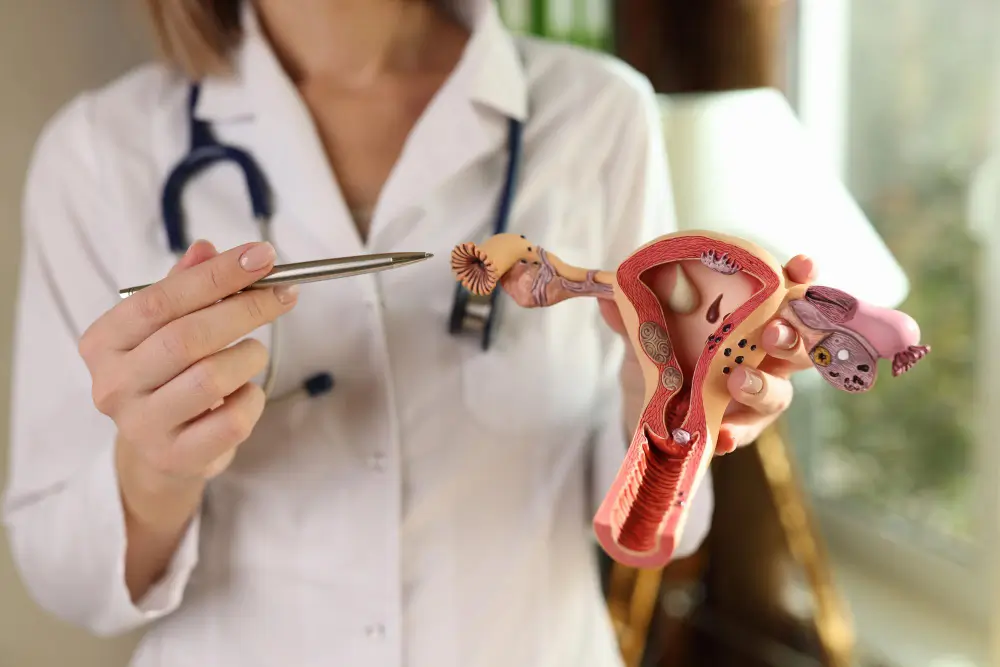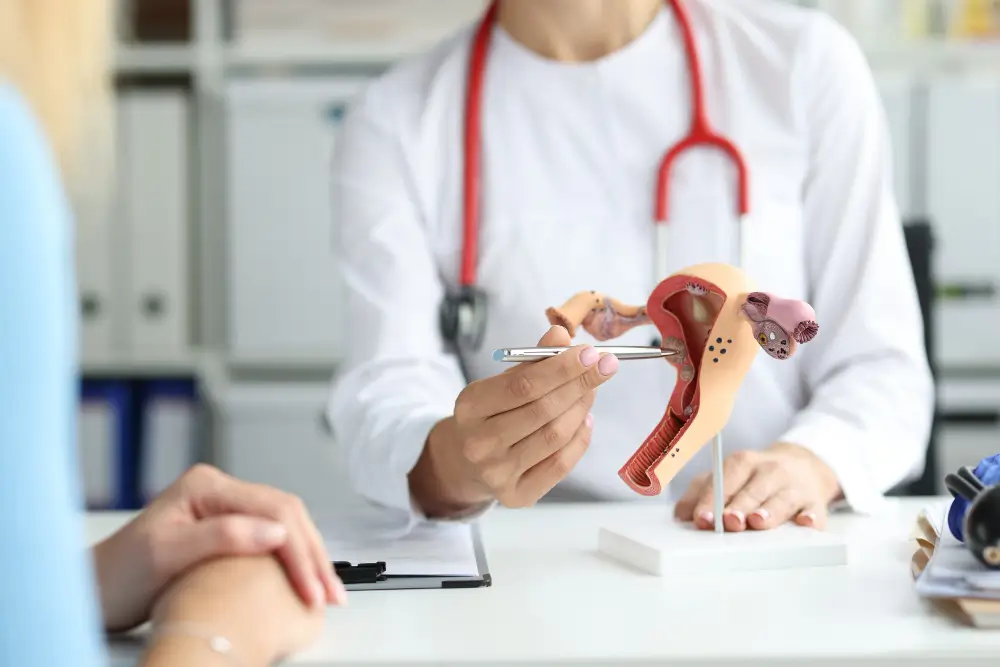For most women, egg retrieval is the highlight of the fertility experience. Whether you are having an IVF procedure done for yourself or donating eggs, the understanding of what to expect makes you feel more ready and confident.
This guide will walk you through egg retrieval, before, during, and after it happens, so you know exactly what to expect.
Before Egg Retrieval – Getting Your Body Ready
Ovarian Stimulation
The first step in the IVF cycle is ovarian stimulation. Medications that stimulate the ovaries are given to make your ovaries produce many mature eggs in one cycle.
Unlike your usual monthly cycle, normally a single egg matures. The aim is to harvest many eggs to increase success rates in fertility treatment.
During stimulation:
- You will be given daily hormone injections.
- You’ll plan your clinic appointments for ultrasounds and bloodwork.
- The doctor will adjust medications as necessary based on your response.
Meeting the Donating Eggs Criteria
If you are donating eggs, your egg donation agency will check to see if you qualify to donate eggs. These generally include:
- 19 to 30 years of age
- General good health
- No inherited or infectious disease
- Healthy lifestyle
These criteria are in place for the protection of your health and for egg quality.
Monitoring and Trigger Shot
Once your follicles are the right size, you’ll be scheduled for a trigger shot.
This injection helps your eggs mature fully in preparation for retrieval. Timing is crucial, and the procedure is usually done 34–36 hours later.
During Egg Retrieval – The Day of the Procedure
Arriving at the Clinic
On the day of egg retrieval, you’ll arrive at your clinic or hospital a few hours before the procedure. Wear comfortable clothes and avoid makeup or perfume.
Anesthesia
Egg retrieval is performed under light sedation or anesthesia. You’ll be asleep or very relaxed and won’t feel pain during the process.
The Procedure
The doctor uses a thin needle, guided by ultrasound, to reach each follicle and gently collect the eggs.
This procedure takes no longer than 15–30 minutes.
The same medical safety and comfort protocols are used for individuals undergoing egg donation in the USA.
After the Procedure
You will be lying in a recovery area for an hour or two until the anesthetic has dissolved. A friend or companion may take you home afterward.
After Egg Retrieval – Recovery and Next Steps
Immediate Recovery
Mild cramping, bloating, or spotting is usual after egg retrieval.
The majority of women can return to light activities the following day, but not heavy exercise for a few days.
Watching for Side Effects
If you have severe pain, heavy bleeding, or symptoms like shortness of breath, call your doctor immediately. These are possible signs of ovarian hyperstimulation syndrome (OHSS).
Emotional Well-being
Egg retrieval can be psychologically taxing, donating or undergoing treatment for yourself. Take it easy, consume healthy food, and give your body time to heal.
Next Steps for IVF
For patients, eggs extracted are fertilized in the laboratory as part of the IVF procedure. Embryos are observed, and the best are chosen to be implanted.
For donors, your work typically only takes as long as it takes to recover, but your donation might affect someone’s life forever.
Tips to Make the Egg Retrieval Experience Easier
- Tips to Make the Egg Retrieval Easier
- Hydrate with plenty of water during stimulation.
- Take all medication as instructed.
- Be honest with your clinic..

Why Choose a Professional Egg Donation Agency
If you are considering donating, using a professional egg donation agency ensures your health as their number one priority.
They walk you through the process and provide you with support prior to, during, and following retrieval.
Indian Egg Donors connects you to established clinics, helps you qualify, and accelerates the process. Contact 212-661-7177 or www.indianeggdonors.com.
Egg Donation in the USA – Standards and Support
Egg donation in the USA is governed, meaning donors and recipients both receive safe, ethical, quality treatment.
Strict screening, competent doctors, and technology are used to make the process safe and effective.
Final Words
It’s less anxiety-inducing to know what to expect when you are ready for egg retrieval.
From stimulation of the ovaries to the recovery, every stage is a well-checked medical process.
If you are the donor, you are presenting someone with a great gift. If you are the recipient, you are making your first step towards parenthood.
With adequate medical professionals and psychological guidance, you can go for egg retrieval without any fear.
For professional guidance, supportive care, and professional advice, visit Indian Egg Donors at www.indianeggdonors.com or call (212) 661-7177.
FAQs
Q. How long does the egg retrieval procedure take?
Ans : The egg retrieval procedure itself takes only 15–30 minutes when you’re under sedation. You’ll be at the clinic altogether for about two hours, preparation included, and recovery.
Q. Does egg retrieval hurt
Ans : You will not feel pain during egg retrieval as you will be under anaesthesia. You may feel some bloating or cramping afterward, which resolves within a few days.
Q. What is the number of eggs in the USA?
Ans : The donors are typically 19–30 years of age, healthy, drug-free, and undergo genetic screening tests. An egg donation agency will make sure that you meet all the criteria.
Q. How soon can I return to work after egg retrieval
Ans : Most of the women return to work the following day. If you have a job that is physically demanding, then you can take two to three days off.
Q. What happens to the eggs after retrieval in IVF?
Ans : Sperm fertilize eggs in the laboratory. The embryos mature for a few days, and the healthiest are chosen to be implanted in the uterus.
Q. Is egg retrieval part of every fertility treatment?
Ans : Egg retrieval is an IVF or egg donation procedure. Not all fertility treatments include it—some include ovulation induction or intrauterine insemination instead.
Q. Can I donate eggs more than once?
Ans : Yes, if you’re screened every time you donate eggs. Repeat donations are allowed by most agencies, with a medical check-up between cycles for safety.

Dr. Veera Saghar
As an Egg Donor Coordinator, she plays a critical role in our company. Her background as a medical graduate from ISRA UNIVERSITY in Pakistan provides us with a solid foundation in the medical sciences. She has seven years of clinical experience practicing in the USA. This has given her firsthand experience when collaborating with patients and their families.
She is responsible for managing the process of egg donation from start to finish. We identify and screen potential egg donors.










